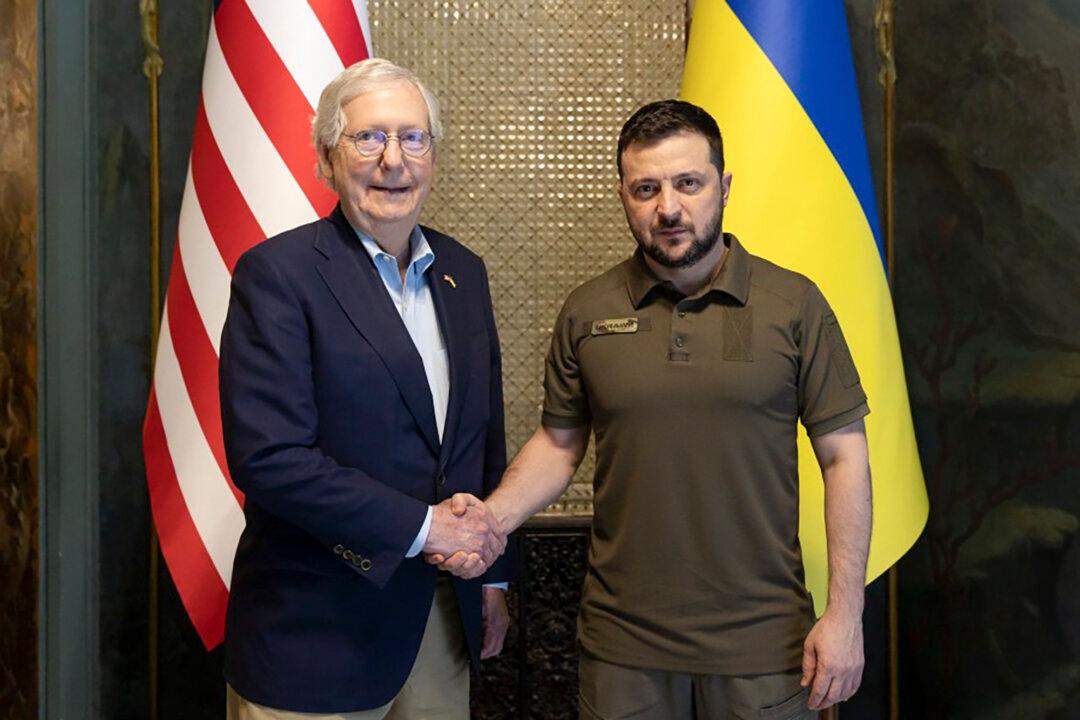Senate Minority Leader Mitch McConnell (R-Ky.) visited Kyiv, Ukraine, and met with the country’s president on May 14 in an unannounced visit.
Ukrainian President Volodymyr Zelenskyy confirmed the visit on various social media platforms.


Senate Minority Leader Mitch McConnell (R-Ky.) visited Kyiv, Ukraine, and met with the country’s president on May 14 in an unannounced visit.
Ukrainian President Volodymyr Zelenskyy confirmed the visit on various social media platforms.